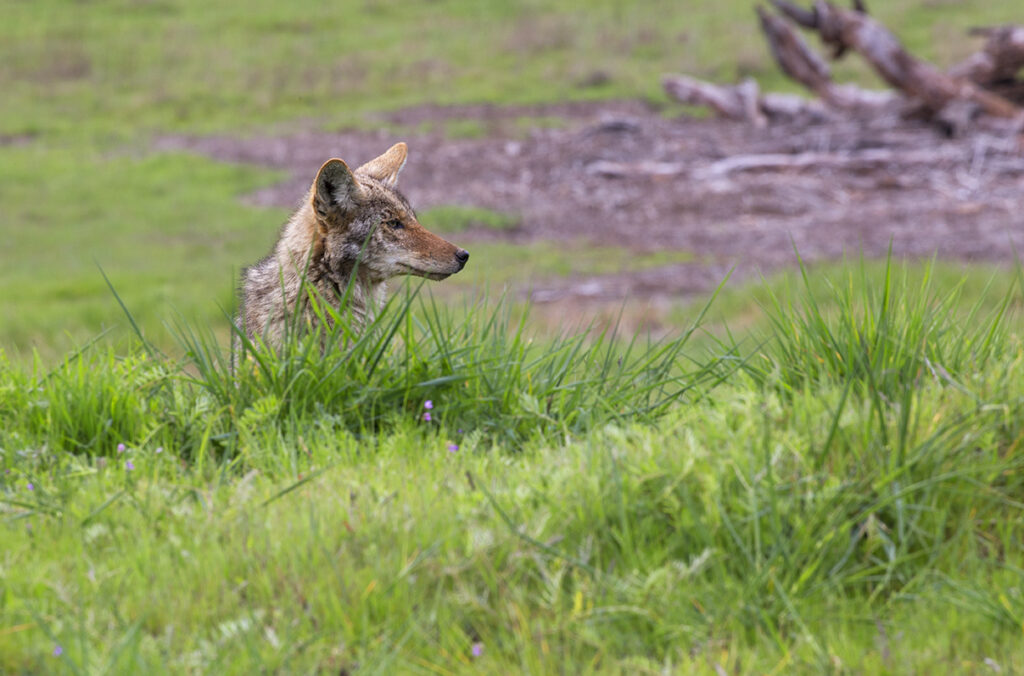
Wildlife Encounters
The Preserve is located at the wildland-urban interface (WUI), a place where human communities intersect with a rugged, natural landscape home to an abundance of wildlife. Living in such an environment means that folks encounter wild animals here more frequently than city-dwellers. It is important to be prepared for encounters and know what to do in any situation.
Table of Contents
Injured Wildlife
Unfortunately, sometimes animals are found injured, sick, or orphaned. While the Conservancy has a vested interest in the health of Preserve wildlife, we are not a rescue or rehabilitation center and defer to qualified professionals to care for injured animals found on The Preserve. If you come across a wild animal in distress, on The Preserve, please follow these guidelines.
Coyotes
If you’re hiking in Carmel Valley, it is especially important to leash your pets during coyote denning season, May through August. To protect their pups, coyotes may “escort” you and your pets away from the vicinity of their den. This behavior is well documented and should not be taken as a threat. Once you’ve left their territory, the coyote will typically turn and trot away. The likelihood of a coyote attacking a human is extremely low. According to The Humane Society, “more people are killed by errant golf balls and flying champagne corks each year than are bitten by coyotes.”
If you do feel threatened by coyotes, please remember to:
- Remain calm
- Make noise
- Make yourself look big (raise your arms, puff up your chest)
- Back away slowly while facing the coyote(s)
Black Bears
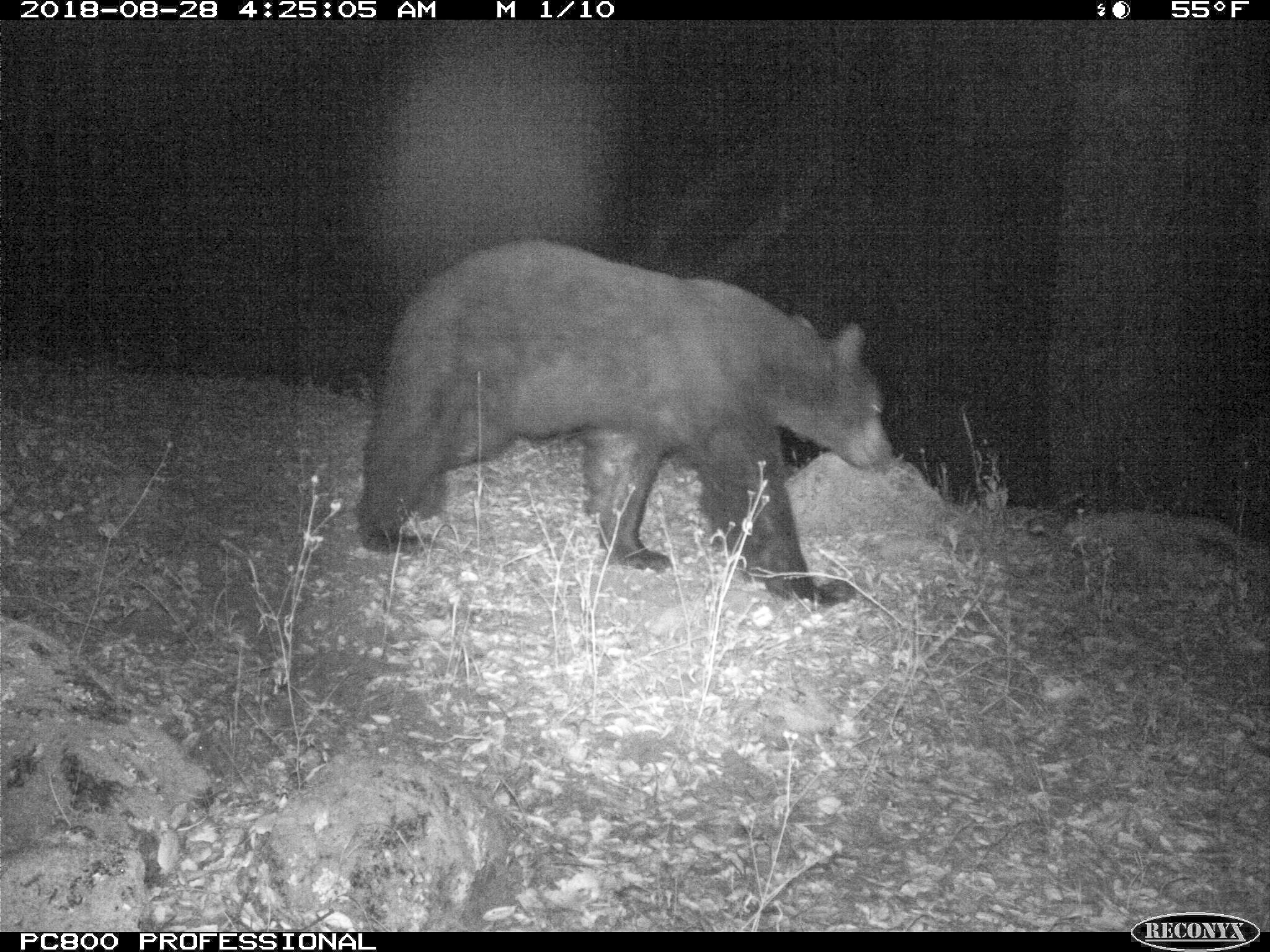
Black bear sightings are not cause for immediate alarm, as they are naturally wary of humans and rarely aggressive. We do not have grizzly bears on The Preserve. If you encounter a bear, stay calm and follow these steps:
- Make noise to announce your presence so you don’t take the bear by surprise
- Raise your arms to appear larger
- Back away slowly while facing the bear (do not run)
Though they tend to have poor eyesight and hearing, bears have a strong sense of smell. The scent of food, including from bird feeders, compost, and improperly stored garbage can attract bears. To keep our wildlife wild and prevent bears from associating people as a source of food, please follow these recommendations:
- Secure trash bins and store them inside a structure completely inaccessible to wildlife
- Wait to put out trash until the morning of collection
- Bring bird feeders and pet food in at night
- Make sure your grill is cleaned after each use
- Harvest fruit from trees as soon as it is ripe, and promptly collect fruit that falls
In the Lake Tahoe Basin, black bear habituation has resulted in a significant increase in bear-human conflicts, with bears breaking into trash cans, homes, and vehicles to find food. Bears are intelligent and highly adaptive, so when they are consistently fed by improperly stored garbage, they learn to find easy meals in human communities and pass that behavior on to their young. By implementing measures to prevent bears from associating humans with food in the first place, we can impede bears from developing this behavior on The Preserve.
Mountain Lions
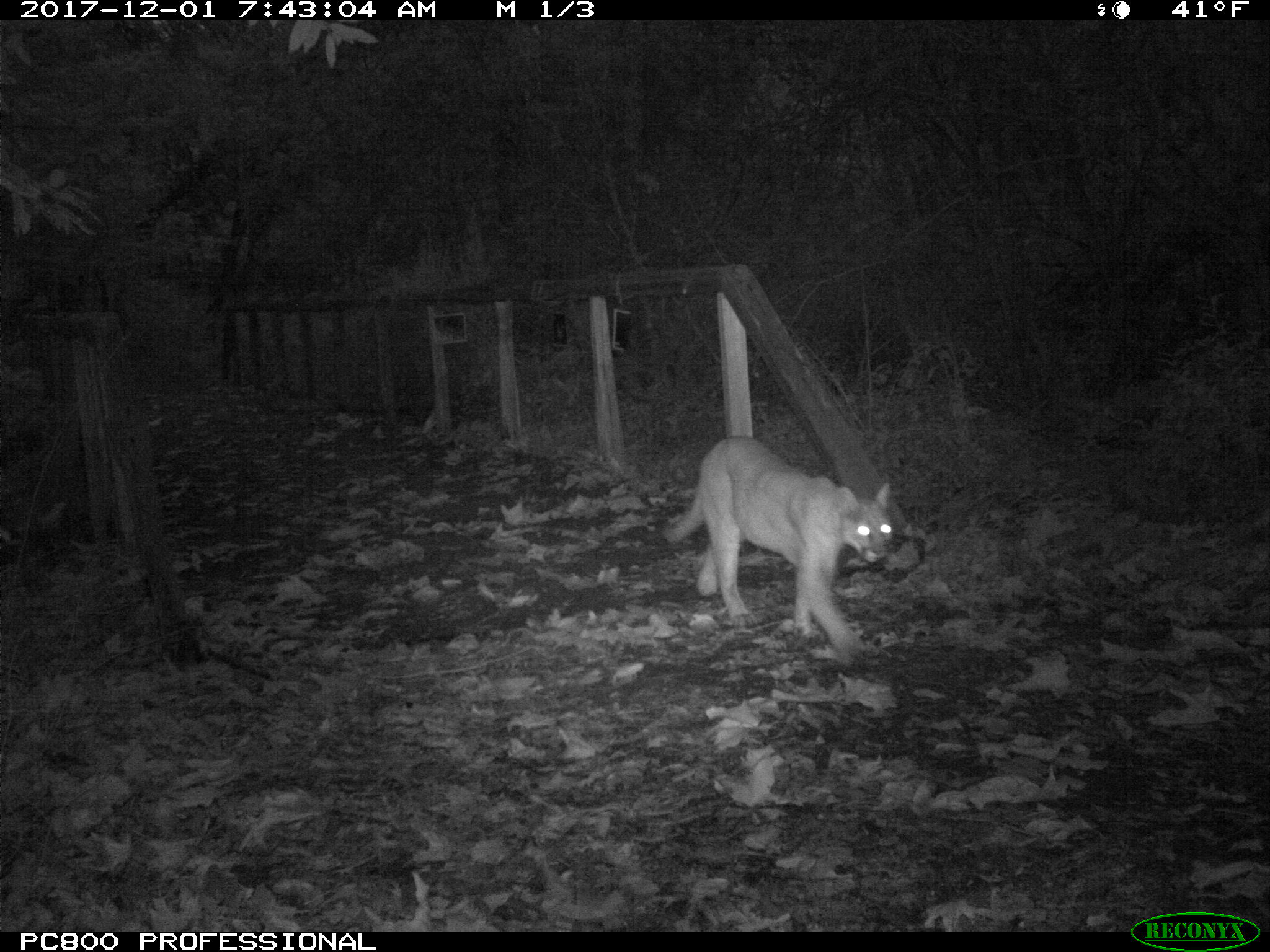
Mountain lions are silent and adept at camouflaging themselves in the landscape. They have been caught on homeowners’ security cameras and on wildlife cameras around The Preserve. In case of an encounter:
- Do not run, crouch, or bend over.
- Make noise (carry a whistle while hiking), talk, or play music
- Make yourself appear larger; raise your arms.
- Back away slowly while never turning your back.
If a mountain lion chases you:
- Appear larger by raising your arms and opening your jacket if you’re wearing one
- Throw rocks/braches/whatever you can find to show that you can defend yourself
- If it attacks, fight back head-on (do not run), and use your backpack as a shield
Rattlesnakes
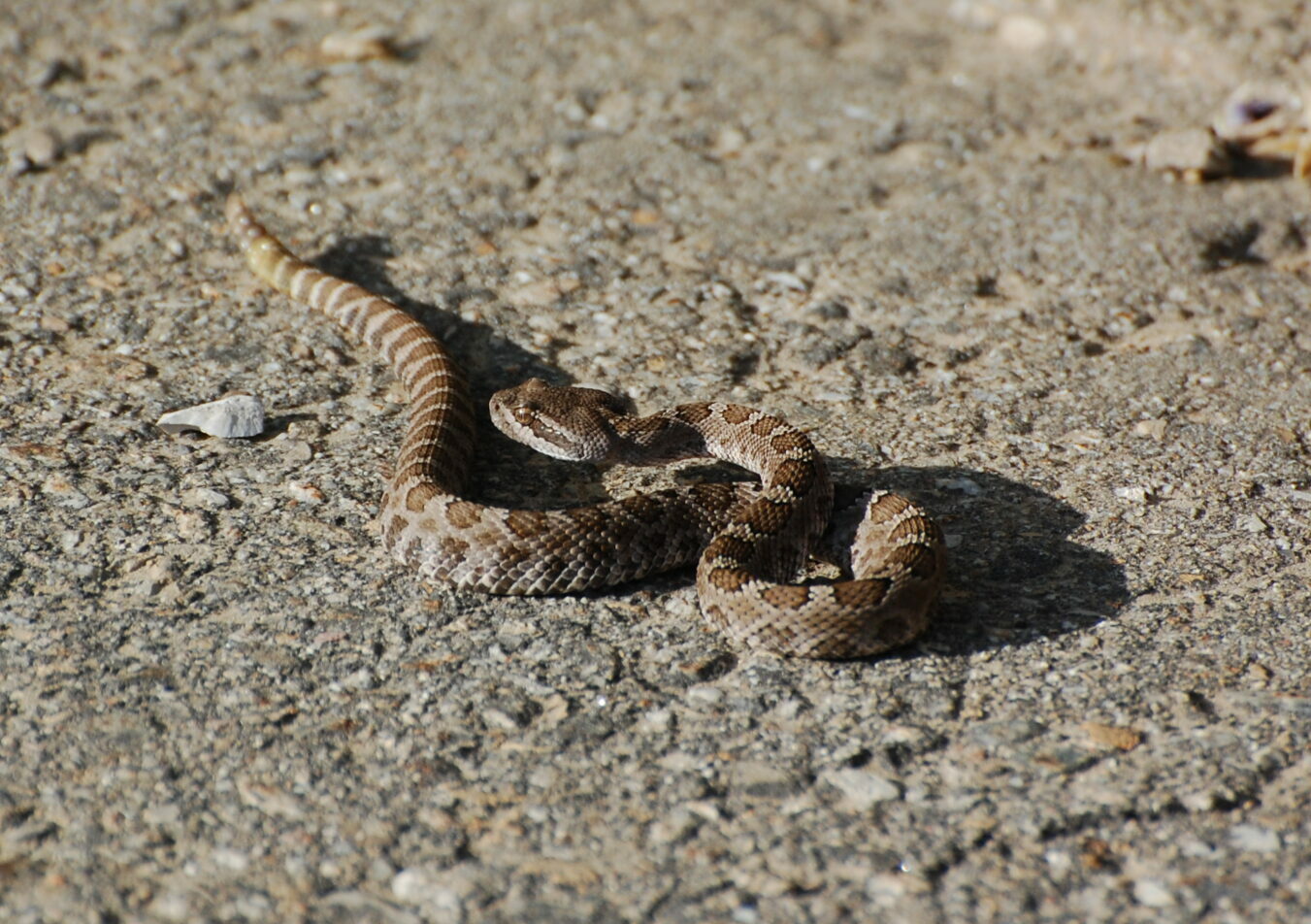
Many snakes are found on The Preserve, but only one is venomous: the rattlesnake. Rattlesnakes (Crotalus oreganus) can be easily distinguished from other snakes by their triangular shaped head, diamond pattern, and unmistakable rattle. Rattlesnakes typically rattle first and retreat when threatened, however, they will strike if they feel provoked. We cannot always count on their warning, so please stay safe by minding these tips:
- Stay on the trail with a clear view of each step
- Keep dogs on leash
- Wear over-the-ankle boots, thick socks, and loose pants
- Avoid tall grass, piles of leaves, and brush
- Avoid climbing on rocks or piles of wood where snakes may be hiding
- Do not try to approach or handle a rattlesnake
If a rattlesnake does bite, it is important to seek immediate medical attention. Stay calm in order to keep the heart rate low, keep the affected area below the heart, and contact the hospital en route so they can prepare the antivenom. Community Hospital of Monterey Bay (CHOMP) is the closest hospital that carries antivenom. Contrary to popular media, it is not effective to try to suck out the venom and using a tourniquet can lead to amputation. Make sure to remove watches, rings or other restrictive clothing that might constrict swelling. About a quarter of all rattlesnake bites are dry (meaning no venom is released), but still require medical attention to prevent infection. With a rapid and appropriate response, rattlesnake bites are not fatal.
Wild Pigs
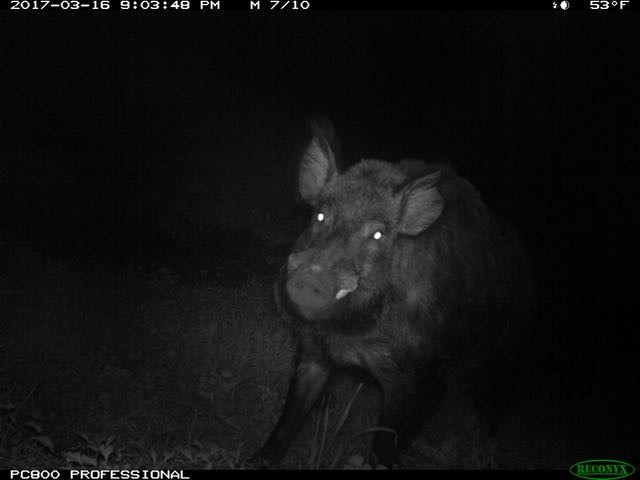
Whether you have directly observed wild pigs (Sus scrofa) foraging on The Santa Lucia Preserve or not, you have likely noticed the damage that this invasive species can have. You may have woken up to your landscaping or garden torn apart or observed the soil disturbance that occurs along the Preserve’s roadsides and oak woodlands. If wild pigs tear up your property on multiple occasions, the Conservancy encourages Preserve landowners to install appropriate and effective fencing within the Homeland boundary to exclude pigs. Please contact resident services to request specialized fencing.
Wild pigs are dangerous and will attack to protect their piglets or if they feel cornered. In California, attacks are more frequent during rutting season (November – January). If you encounter a wild pig on The Preserve:
- Keep a safe distance
- Slowly back away (don’t run)
- try to reach higher ground
If the wild pig charges:
- Keep your footing and side-step quickly to avoid being hit by the tusks as it swings its head side to side
- Fight with whatever you have on hand (a metal water bottle, knife, etc.)
- Stay standing. Do not fall or curl up on the ground – you can suffer greater injuries once down.